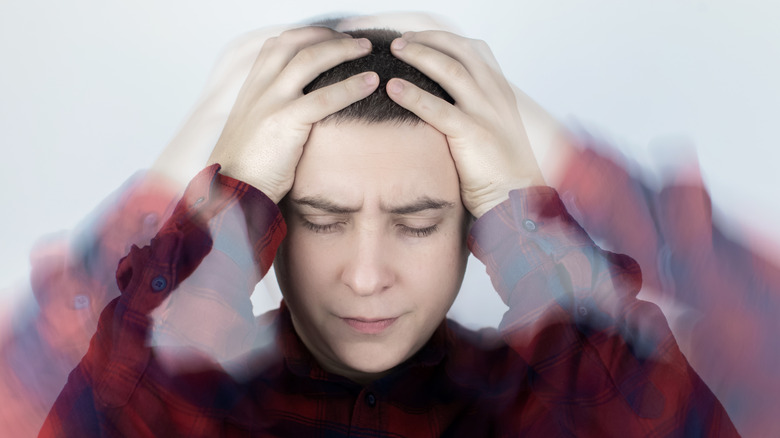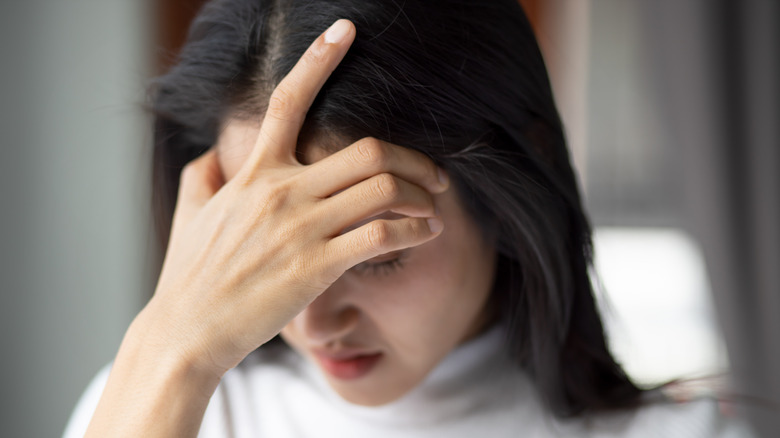Here's What's Really Causing Your Dizziness
Occasionally feeling dizzy is not uncommon. According to the Mayo Clinic, there are many potential reasons why you may be experiencing dizziness. Certain medications, inner ear disturbances, and even stress can be the reason behind your dizzy spells (via Medical News Today).
Not getting enough water is another possible cause of your symptoms. Dehydration causes your body to retain water, which forces your heart to have to work harder to maintain a steady blood flow, which can lead to feelings of dizziness (via Healthline). This is especially true in hot weather, as it exacerbates your body's dehydration levels. "People don't realize the amount of fluid they can lose in the heat, or while exercising," Michael Bergeron, chief executive officer and president of Youth Sports of the Americas, told NBC.
According to the American Heart Association, low blood pressure can also cause dizziness. Low blood pressure may result from pregnancy, heart problems, or taking certain medications. If you've already ruled out these factors, there are a few other causes of dizziness to consider.
Other reasons you may feel dizzy
Low blood sugar, also referred to as hypoglycemia, could be another reason behind your dizziness (via NHS). Surprisingly, even your mental health could be behind why you're feeling faint. According to Medical News Today, when you are experiencing stress and anxiety, your brain essentially thinks you're in danger and acts accordingly.
In an attempt to protect you, it signals your heart to start sending blood to your limbs and major organs to prepare you to fight off the threat or run away from it. To get your blood flowing, your heart has to beat faster, which requires more oxygen. This results in your breathing becoming more shallow and rapid which can cause you to feel dizzy.
While many causes for dizziness are treatable at home, you should see a doctor if your dizzy spells become severe or if they don't seem to be going away.


